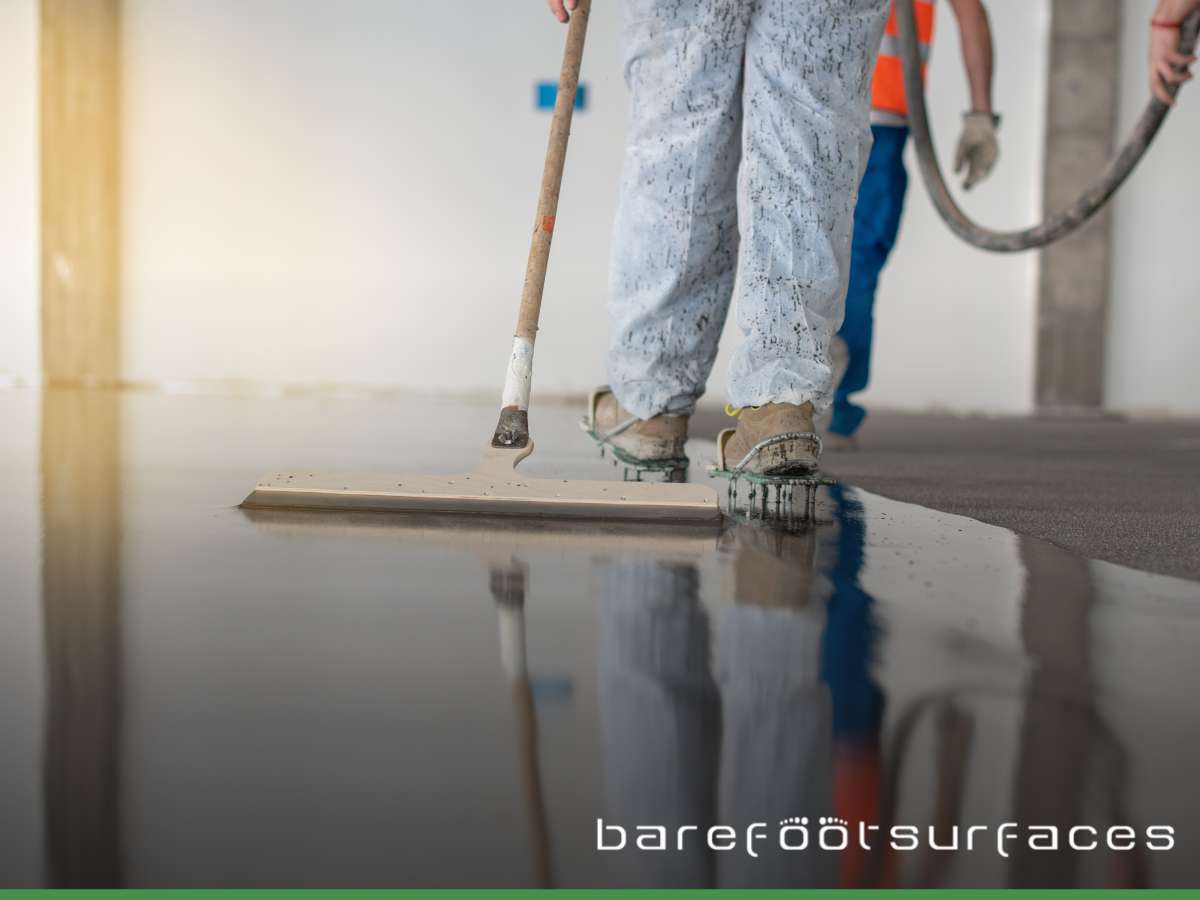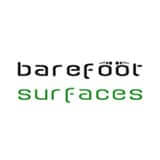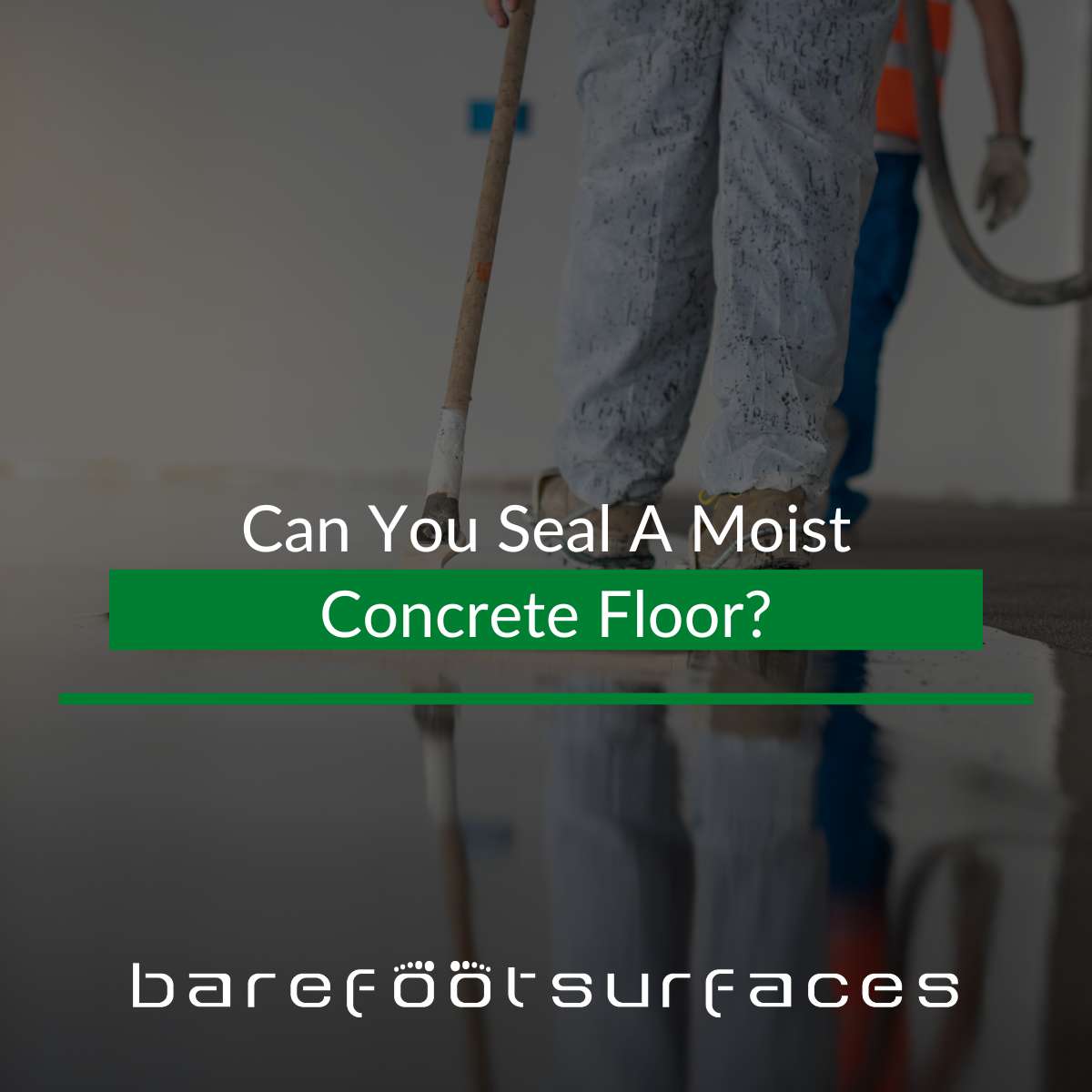Can You Seal A Moist Concrete Floor?
What Is The procedure For Sealing Wet Concrete Floors?
One of the most frequently asked questions regarding concrete floors is how to seal it if it’s moist. Many homeowners don’t even know if it’s possible to do that.
The short answer is yes, it is possible to seal wet concrete, but it requires special attention.
Concrete floors can become damp because of their porous nature, allowing water from below your house to seep through. This can lead to mold and mildew problems, especially if you have a rug or furniture on top of the concrete.
Basements and garages with stained concrete floors in Gilbert can also have poor air circulation, leaving moisture with nowhere to go once it soaks through the floor. But fortunately, concrete sealing can help to eliminate humidity on your floor.
So, how can we seal a wet concrete floor? What tools are necessary? Let’s find it out!

Check The Moisture First
Check the dampness of your floor before sealing it. Use painter’s tape to secure a small square of clear plastic to the ground. Check the plastic after 24 hours to see if any water has condensed beneath it. If this is the case, your floor may be too wet to seal; most sealants work only with a dry surface. Clean and dry it thoroughly before sealing the floor.
Floor Cleaning
Clean your floor thoroughly before drying it to remove dirt and mildew buildup. Firstly, you must vacuum or sweep the floor and then scrub it with a mop. To clean the floor, mix one part of bleach with four parts of warm water.
The bleach also aids in the killing of mold and mildew that may have piled up on the floor. Pay close attention to the edges, where insects and mildew thrive.
One of the best recommendations for stained concrete floors in Chandler is to rent a rotary floor scrubber with a concrete abrasive pad. You can apply trisodium phosphate, or TSP, to the floor and get a deeper clean.
After using the scrubber, rinse the ground meticulously, then remove the water with a wet-dry vacuum.
Dry The Floor
Make sure the floor is dry before sealing it. You can help the floor dry more quickly if you clean it when it’s not raining and the humidity is not too high.
A dehumidifier or floor fan can help circulate the air and speed the evaporation of dampness. Continue to dry the floor until the dampness test with the plastic square remains dry overnight.
How To Seal The Floor
Most sealers are clear, which can make application difficult because even coverage is essential for avoiding future wetness in your concrete floor.
To ensure full coverage with a light coating of sealer, paint small areas at a time; too much sealer can cause bubbles as it dries. Use a concrete moisture-protection sealer, such as an epoxy concrete sealer, which often is available in two parts that you must mix immediately before applying it.
There are many options to seal your concrete floor, but Queen Creek epoxy garage floor coatings usually provide the longest and most reliable results.
Now that you know what to choose, it’s time to understand the application process.
Follow the steps below for the best sealant results:
Choose Your Concrete Sealer
There are many sealers available, so it’s crucial to pick the right one for your project. These are the options:
- Acrylic sealer – This simple sealer is ideal for basements and other concrete floors that will not be exposed to oil or grease. Acrylic sealer sits on top of the concrete rather than penetrating it, making it ideal for sealing interior floors.
- Epoxy sealer – This type of sealant is more durable than acrylic and protects against grease and oil, making it ideal for a basement, garage, or outdoors. There are also a few color options so you can customize your finish.
- Polyurethane sealer – This type of sealer is more durable than acrylic and provides UV protection.
Siloxane sealer – This sealer penetrates concrete and can last up to 20 years. It is a popular sealant for indoor and outdoor surfaces.
Clean And Dry The Floor
We already explained this step, but we still insist it’s crucial to make the most of your sealant.
To take proper care of stained concrete floors in Fountain Hills, you must clean them right. Take enough time for this process to ensure they’re ready for the sealant.
Fill In Cracks
Once you have cleaned your floor, locate any cracks to repair them. You can apply concrete repair caulk and smooth it out with a towel. Let it dry before continuing.
Apply The Sealant
Follow these steps to apply the sealant properly:
- Open your windows and ventilate the area.
- Apply the sealant on the surface with a 9” roller.
- Let it dry.
- Apply a second coat using a roller and a brush to protect corners and edges.
- Let the final coat set for a few days before using the floor.
Choose Gilbert’s Leading Concrete Floor Company For Better Help
With the right floor coating, you can give your garage floors new life while also improving their durability and appearance. Let the experts at Barefoot Surfaces help you so you can make your concrete floor a unique piece of your garage again. Contact us today.

Barefoot Surfaces
740 E Redondo Dr
Gilbert, AZ 85296
Phone: 602-931-7656
Email: [email protected]
Website: https://barefootsurfaces.com/


Recent Comments